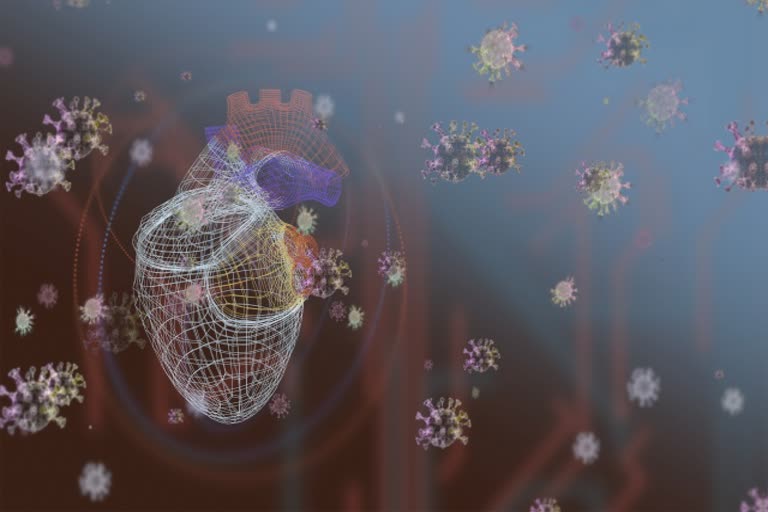Fellowship in cardiology from Singapore, Member of American College of Cardiology, Member of the American society of echocardiography, Fellow of the Indian society of echocardiography, Member of the Endocrine Society, Ex lecturer of Goa Medical College for more insights into the same.
Just as we do CT Scans of the chest to know the extent of lung involvement or to know the development of pneumonia, we need to carry out some more tests like
- ECG
- ECHO
- Advanced ECHO
- All these will help us to know whether the heart is affected or not.
Just based on the symptoms, we may not be able to differentiate whether the patient has got problems only due to the virus or because of lung involvement or also due to heart involvement.
There are more advanced blood tests like Pro BNP which will tell us whether the patient is in heart failure or whether it is a lung problem only. All these tests will have us point whether we are looking at a cardiac issue or only at a lung issue.
If the patient has acute chest pain, and if the ECG is not diagnostic enough, then a heart enzyme test called as Troponin test is usually done. This test helps us decide whether the pain is due to the heart or due to another reason.
Time for recovery:
This has been a major controversial issue and it all depends on how fast the patient can come out of Covid 19. So, we can say that the time for recovery depends on the immune system of the patient.
Let us say, if the patient has not been vaccinated, then we consider 2 phases; the Viremic phase, where the virus is replicating (rapidly multiplying) itself, and then the Immune phase. So, the patient may run a fever, fatigue up to the initial phase up to days, we generally say that the virus is replicating itself.
This is the time when most of the Remdesevir and antibody cocktails will work. This is the phase where the patient can recover on his own. This is up to 7 days. Once we cross 7 days and the patient still runs a fever, then the immune phase has already started, it only means that your body has not been able to completely eradicate the virus and the immune system has been excessively charged or activated. And now the second phase has started where the antivirals may or may not help and immunomodulatory substances like steroids may need to be administered.
So, there are no definite criteria by which you can say for sure the time taken for recovery from Covid and it is completely a case-based approach. However, we need to provide constant reassurance to the patients that they will fight it out and recover. About 80% of the people recover well while the rest of the people will go into the second phase where you may see some complications or you may still recover. But a large part of the patients may remain asymptomatic, may have a mild fever for a few days, and can recover within 5-7 days.
Also Read: How COVID-19 Affects Your Heart
The vulnerable group.
1.With respect to the heart, the elderly people who have already had a history of ischemic heart disease like if the patient has already undergone bypass surgery or angioplasties or whose heart is inherently weak due to some reason.
2.Have comorbidities like Diabetes, hypertension, have had a renal transplant, suffering from renal failure, or undergoing dialysis.


